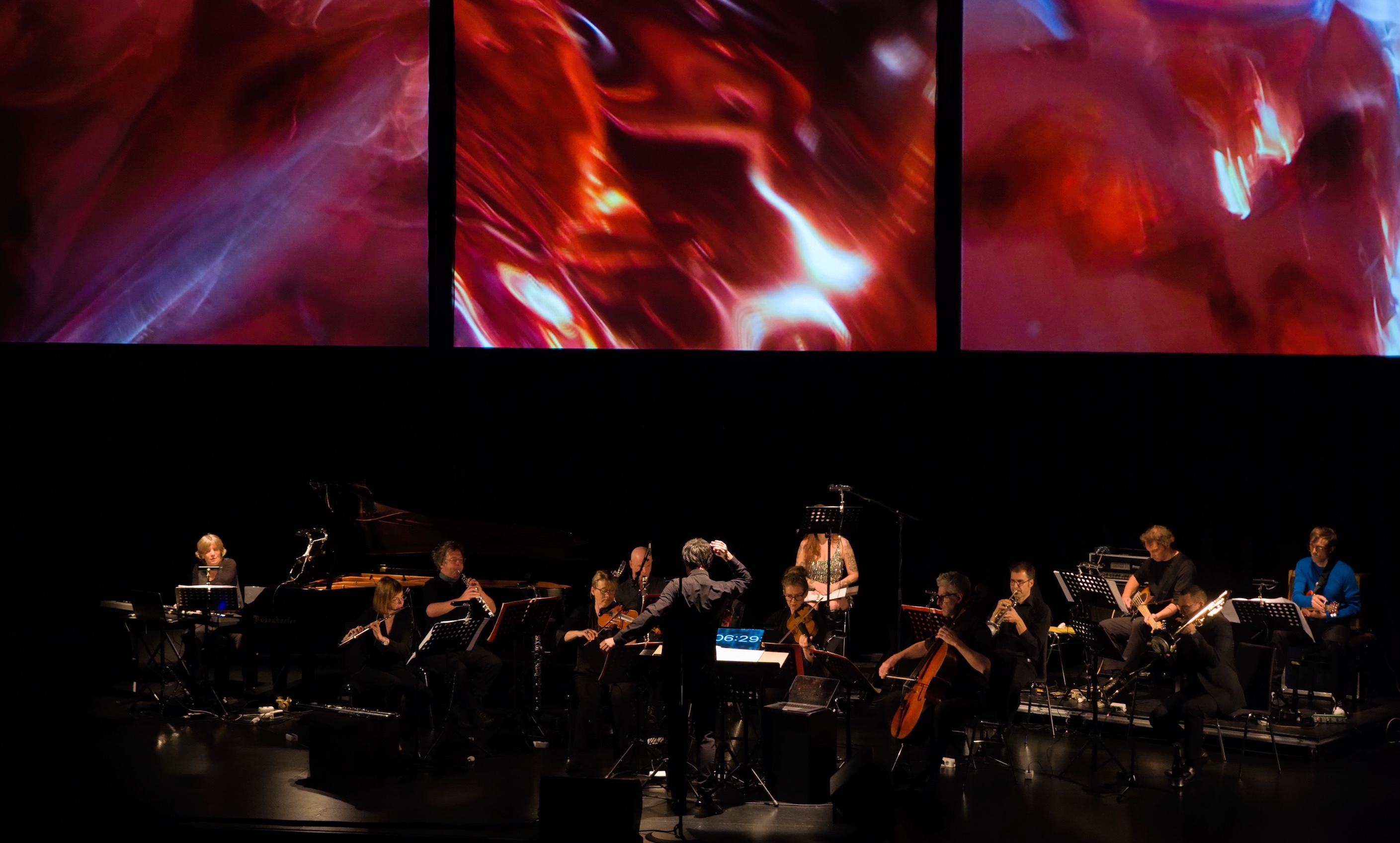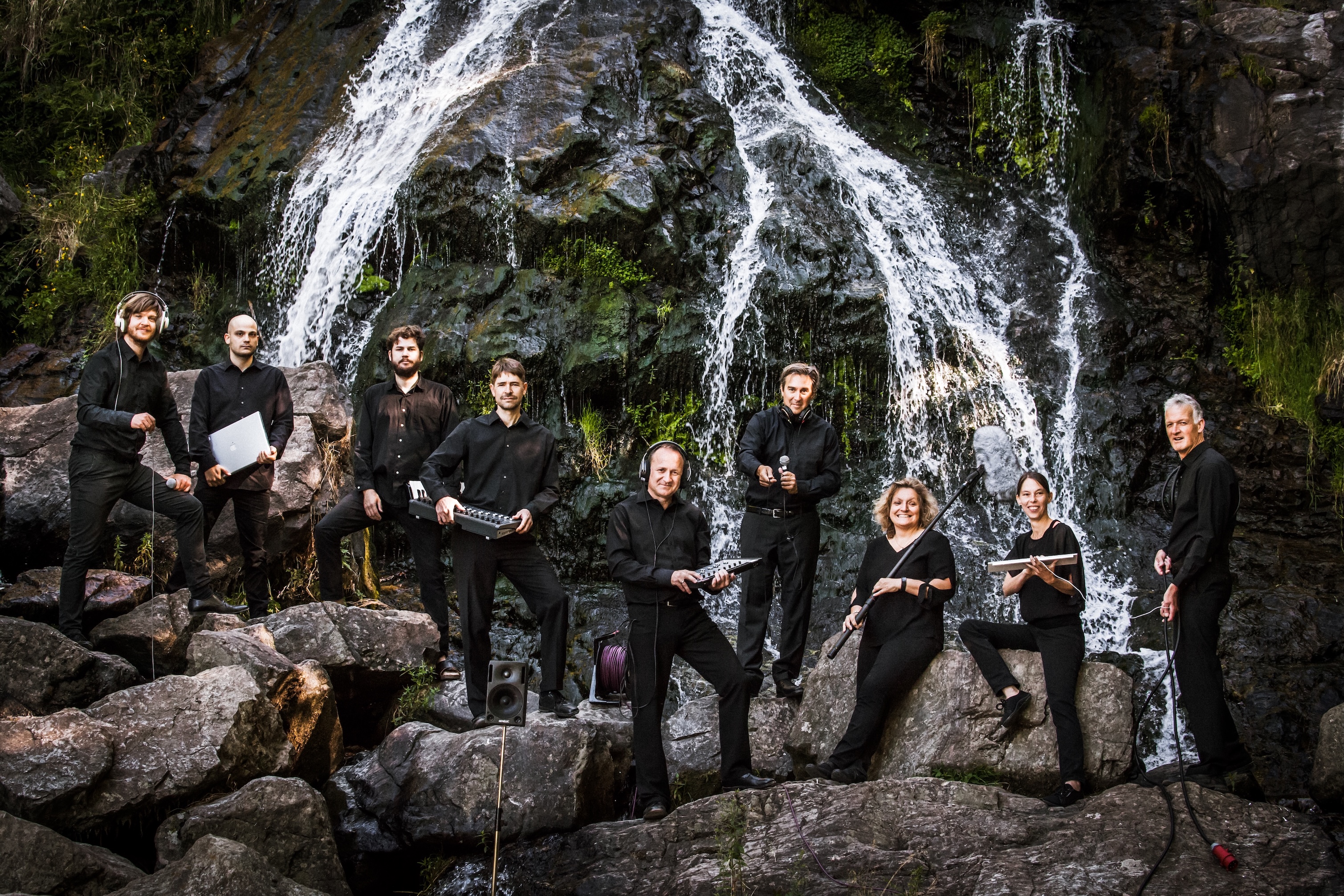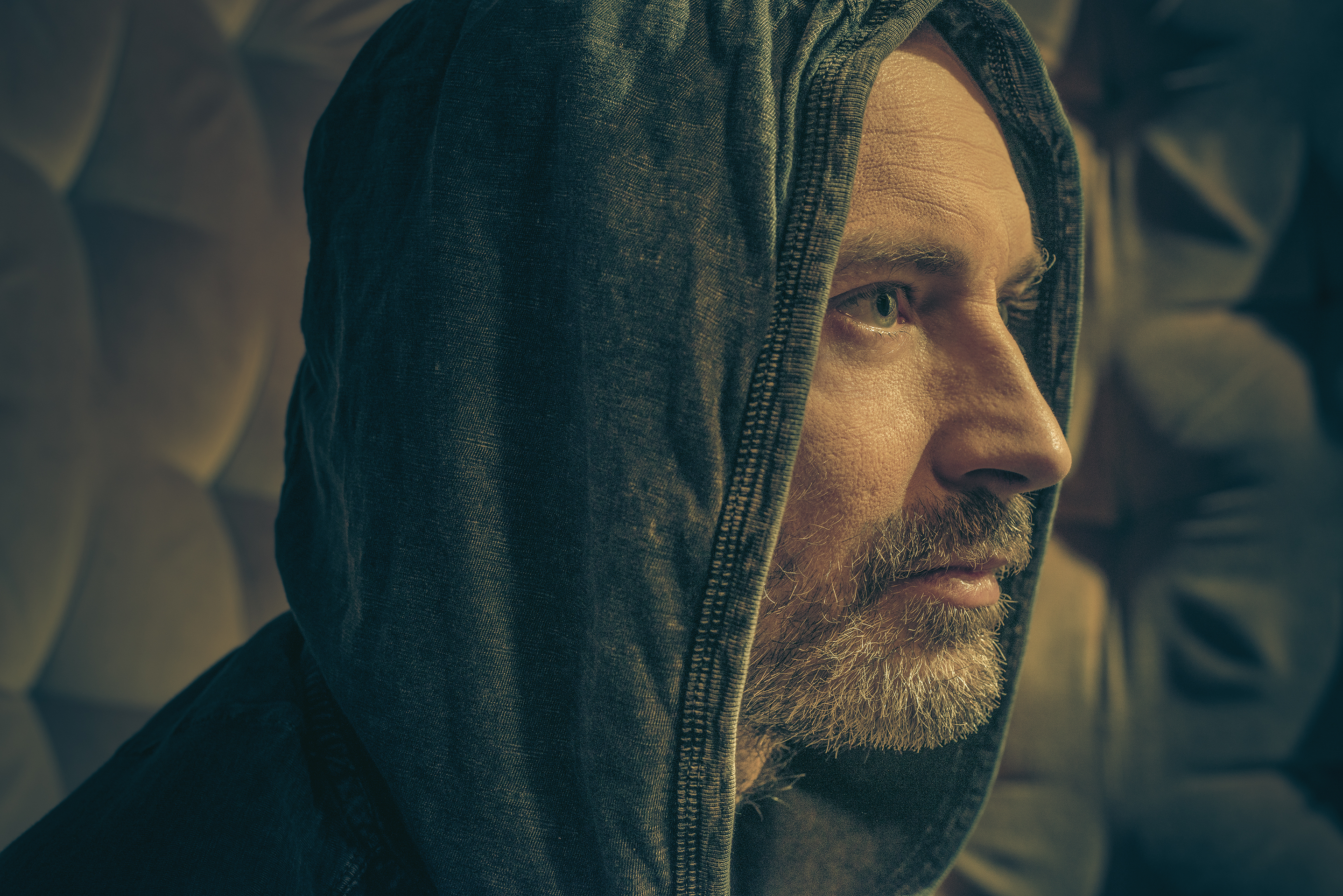68th "Warsaw Autumn"
CLEARING
About the human ability to overcome historical adversities. About the rebirth of cities, societies, and human force of vitality. Music in the context of reality, but also calling for changing it. About new opportunities and hopes.
This year’s Festival seems to be dominated by ensembles. But that is only the surface. Ensemble playing is not always associated with typical concerts. It offers works and events that span the spectrum between notation and performance, narrative and installation, sonority and intermedia, works to be performed by musicians and social events. Ensemble playing can be very diverse and bring new ideas to both the music itself and its forms of presentation.
SIX CURRENTS OF THE FESTIVAL
Main stream // Warsaw Autumn Hits the Club / Dagna Sadkowska – curator // Little Warsaw Autumn / Anna Kierkosz – curator // Warsaw Autumn – Contexts / Katarzyna Naliwajek and Marcin Rychter – curators // inter-festival events // fringe events //
AND
meetings with artists / workshops for young composers / Aleksandra Bilińska – coordination // broadcasts on the Festival Internet Radio / Monika Pasiecznik, Tomasz Biernacki – hosts //
MAIN STREAM
Cezary Duchnowski – opera / SINFONIA VARSOVIA, TEATR WIELKI - POLISH NATIONAL OPERA CHOIR / Joanna Freszel and Agata Zubel – sopranos, Filip Kosior – actor, Cezary Duchnowski i Marcin Rupociński – electronic layer, media programming, Bassem Akiki – conductor, Beniamin Bukowski – libretto, Barbara Wiśniewska – director // Pauline Oliveros, Hubert Zemler – music in several spaces, performance / ACCORDION & PERCUSSION ORCHESTRA, DEAF PERCUSSION ENSEMBLE / Maciej Koczur, Rafał Łuc and Hubert Zemler – musical direction, Michał Mendyk – curator // Philip Venables, Hannah Kendall, Marta Śniady, Paweł Malinowski, Laurence Osborn – concert / LONDON SINFONIETTA / Geoffrey Paterson – conductor // Jan Emil Młynarski – percussion, Zbigniew Chojnacki – modular accordion // TRIO PLF // Pierre Jodlowski – opera / PHACE //

PHACE, fot. Markus Bruckner
Matthew Grouse, Eveline Vervliet, Nina Fukuoka, Paul Scully – intermedia event / NADAR ENSEMBLE // Aleksandra Gryka, Kim Myhr, Angélica Castelló, Pierre Slinckx – narrations and soundscapes / CIKADA // Lidia Zielińska and Icelandic composers – concert-soundscape / NORDIC AFFECT // Wolfgang Rihm, Ricardo Eizirik, Maciej Kabza, Golnaz Shariatzadeh, Fausto Romitelli – concert / EUROPEAN WORKSHOP FOR CONTEMPORARY MUSIC / Rüdiger Bohn – conductor // Wojciech Glądys, Jacek Sotomski – performative radio plays / Magda Szpecht – direction and dramaturgy / Rafał Ryterski – curator // Katarina Gryvul, Anna Sowa, Alex Paxton, Arash Yazdani – concert / ENSEMBLE MODERN / Jonathan Stockhammer – conductor // Piotr Tabakiernik – concert-mystery / ORKIESTRA MUZYKI NOWEJ, Katowice City Singers’ Ensemble CAMERATA SILESIA / Szymon Bywalec – conductor // Claudia Scroccaro, Agata Zubel, Justė Janulytė, Franck Bedrossian – music in several spaces / SWR VOKALENSEMBLE, SWR EXPERIMENTALSTUDIO / Yuval Weinberg – conductor //

SWR Experimentalstudio, fot. Anja Thölking
Michael Hope – musical theatre / ENSEMBLE K!ART // Sara Glojnarić, Ewa Trębacz, Zosha di Castri, Idin Samimi Mofakham, Wojtek Blecharz – concert, music in several spaces / WARSW PHILHARMONIC ORCHESTRA, proMODERN / Oscar Jockel – conductor // Kuba Krzewiński – performance / Phoebe Bognár, Anna Kwiatkowska, Kuba Krzewiński // and other events.
ABOUT THE FESTIVAL
Unlike last year’s and previous editions, 2025 Warsaw Autumn is not mainly themed around aesthetics and sound material. In 2024, our motto of “Permeations” referred to the migration of musical phenomena between eras and genres. In contrast, this year’s programme does not pivot around one specific problem or idea, as was the case with the 2017 edition (titled “Res Publica,” examining the state of social relations in the context of the centenary of the Polish state’s revival after the period of partitions) and the 2019 edition (which explored the contemporary human longing for the now elusive spiritual dimension and the world’s cohesion).
“Clearing,” the keyword of this year’s Festival, symbolises a new stage, a new opening and chance, in both the social and individual dimension. The word carries the hope that we wish to have for the future in an age that has been shaken to its foundations. We therefore turn our attention to works that share alarmist premonitions and anxieties, not in order to plunge us into despair, but to alert us, to protect us from perils, and lead us to normality.
“Clearing” (Lichtung in German), a term used by the philosopher Martin Heidegger, has been interpreted as “referring to a treeless forest glade, which best represents the phenomenon in question. It also partly lets the sunshine in. In this interpretation, it becomes an opening that lets us see phenomena and objects that have been partially concealed from view… The notion has been defined in many ways, which gives it a synergistic potential since every meaning opens up another wide sphere. Together, they form a new quality that rather well defines the possibilities of being and perceives light as a source of illumination” (Mateusz Kłosowski, In the Clearings of Poetry and Philosophy, where Leśmian and Heidegger Meet).

Cezary Duchnowski, fot. Tomasz Kulak
At the start of our work on this Warsaw Autumn edition several years ago, we knew that The Best City in the World: An Opera about Warsaw would be the pivot of its programme. It was commissioned by the City of Warsaw to mark the anniversary of the ruined city’s liberation from German occupation towards the end of World War II. It will be worthwhile in this context to refer our audience to Grzegorz Piątek’s book, which was the point of departure for this opera. The composer Cezary Duchnowski and librettist Beniamin Bukowski present a message that concerns, in a broad sense, not only Warsaw but also other places of mass destruction and extermination, including those made notorious by recent or current events. Here again the social and the individual perspective coexist.
While programming this edition of Warsaw Autumn, we have therefore sought to include also other works that grasp the experience of communal and individual trauma, but also, as a counterbalance so to speak, works that compensate for such traumatic contexts by helping listeners recuperate and opening them up to the light in the “clearing” as well as to intriguing sounds from afar, as during the final concert of the Festival. This edition’s catchphrase thus connotes many varied types of content while indicating the mental bias and context of the whole programme, also in cases where the presented music is not directly related to the Festival’s keyword.
This year’s Warsaw Autumn comprises more than seventy events, representing a diversity of formulas such as the opera, concerts, performance art, intermedia, soundscapes, audio dramas, music theatre, exhibitions, musical walks, films, installations, meetings, and debates. Apart from the core programme thread, our cycles – Warsaw Autumn Hits the Club and Little Warsaw Autumn, as well as fringe events, we also continue the Warsaw Autumn Contexts series of conversations on new music as related to various aspects of social life, culture, and technology. Also for the first time, we present new inter-festival collaborations within the cycles HerSounds (prepared with Sonics & Scenics and HER Docs Film Festival) and Lab Autumn (jointly with Hashtag Lab).

Aleksandra Słyż, fot. Thomas Zanon-Larcher
The core programme and Club events alone include performances of sixty works, fifty-eight of which are world or Polish premieres, and fourteen were commissioned by Warsaw Autumn. The 2025 edition presents the achievements of fifty-six internationally active artists from twenty-three countries. This year’s Warsaw Autumn Hits the Club series comprises five events, whereas the 15th edition of Little Warsaw Autumn will bring sixteen initiatives, representing a staggering diversity of genres and ideas. The fourteen fringe events coordinated with the Festival schedule include music performances, film screenings, and meetings (including PWM Edition’s promotion of Adam Suprynowicz’s book about Tadeusz Wielecki).
After several years’ interval, Warsaw Autumn will again host a guest festival. As was previously the case with Ad Libitum, this year we feature the Norwegian festival Ultima, which has already been held 35 times. Artistic events, we believe, can also be a statement of an aesthetic, but also a philosophical, social, and cultural nature. Going beyond the material, they venture to map out and interpret phenomena. They constitute a mental capital worthy of being shared and discoursed with. An opportunity for such a debate will be provided by a meeting with Ultima’s director Heloisa Amaral and with Sarah Ludwig-Simkin, leader of Cikada ensemble, working closely with the Ultima festival.

Cikada, fot. Abrakadabra Jan Kühr
Warsaw Autumn takes place not only in Warsaw, but also in a dozen other locations. Concerts programmed and works commissioned by our Festival are presented this time at Ensemble Modern events in Frankfurt am Main, at festivals such as deciBels in Tallinn, Huddersfield Festival of Contemporary Music, Transit 20.21 in Leuven, New Music Dublin, Ultima in Oslo, Gaudeamus in Utrecht, Wien Modern, Donaueschinger Musiktage, Osterfestival Tirol, as well as in venues such as Concertgebouw Brugge and the NOSPR (Polish National Radio Symphony Orchestra) concert hall in Katowice. As this list amply demonstrates, Warsaw Autumn is not merely a seasonal event, and it is not confined to the Polish capital.
The Warsaw Autumn Festival Web Radio station, run by Monika Pasiecznik and Tomasz Biernacki, will broadcast reports, cultural commentary, and conversations with Festival guests. Meetings with composers and performers will also be held at the Austrian Cultural Forum. Five sessions of opinion exchange and debates will take place as part of the Contexts series, while the young generation of composers will have an opportunity to consult eminent Festival guest artists during workshops organised again at the Austrian Cultural Forum.
I am grateful to all the organisers and persons behind this year’s Warsaw Autumn, as well as institutions and persons who have supported its organisation. In particular, I would like to thank my colleagues from the Repertoire Committee, the event curators and coordinators, my collaborators from the Festival Office, the various sections and segments of the Polish Composers’ Union (ZKP), all our sponsors, co-organisers, and partners.
I would like to express my special thanks to Krzysztof Szwajgier, one of the members of the Committee. Over the last 26 editions of the Festival, Krzysztof’s knowledge and creativity have had a profound impact on Warsaw Autumn. The term “dynamistatics” which he coined and which became the motto of our 2015 edition, will remain among the important criteria for the reception of music, continuing to live on beyond Warsaw Autumn.
This year’s Warsaw Autumn coincides with the centenary of the foundation of the first professional association of Polish composers in 1925. The ZKP Polish Composers’ Union is a successor to that earlier organisation. In the international context, the range of our activities, creativity and vigour can truly be deemed exceptional. ZKP has contributed to a plethora of artistic initiatives, launched the Warsaw Autumn Festival, and has remained its organising body ever since. The Union’s agency extends beyond artistic matters into areas such as the development of links, programmes and legal regulations crucial to the functioning of Polish musical life. This aspect of the Union’s work, which defies our artistic and academic milieu’s ostensible focus on creating scores and applying for funds, is particularly important to our environment. It is thanks to the Union’s efforts that the Polish model positively stands out from the European average in many of its aspects, and features original solutions that have proved culturally effective. To the young generation of artists, these advantages seem natural and obvious. In truth, however, in relation to Polish musical culture and its circles, politicians and administrative bodies have never offered anything as a simple “gift.” That the said structures and solutions now exist is notably a fruit and application of the Union’s know- how, consistent effort and strategy. This year’s centenary of the Union’s operations is an opportunity for the Warsaw Autumn to show our gratitude to so many generations of its members. It reinforces our conviction that by uniting to work together also beyond the strictly artistic sphere, we can achieve a lot and live up to the new needs and challenges that we are facing.
For now, let me cordially welcome you at the 68th Warsaw Autumn. The descriptions of the events used materials freely drawn from comments published in the Program Book of "Warsaw Autumn".
Jerzy Kornowicz
Director of the Festival